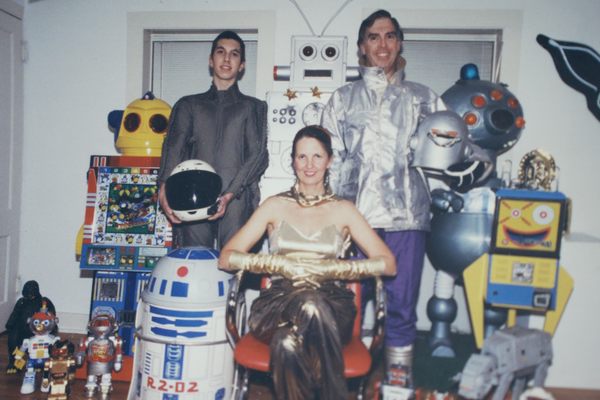The Fastest Spacecraft in History Will Die to Protect Possible Alien Life
Juno will commit mechanical suicide.

A model of the Juno spacecraft, which just reached Jupiter. (Photo: NASA)
The spacecraft Juno launched five years ago, bound for Jupiter, in NASA’s long-awaited second trip to the giant planet. The first spacecraft, Galileo, left Earth in 1989 and reached Jupiter after an eight-year voyage, before plunging into the planet in 2003, in an intentional mechanical suicide.
Juno, which arrived at Jupiter on Independence Day, will ultimately come to the same fate, a deadly radiation-absorbing dive into the gaseous planet, probably some time in 2018, according to the New York Times.
And while just getting there is huge for NASA—one official told the Times Juno was the “hardest thing NASA’s ever done”—the death dive will bring a sad end to things, even if the spacecraft will transmit some valuable scientific information back to Earth along the way.
What kind of rock core does Jupiter have? And what’s up with the Great Red Spot, a constant storm that has existed for hundreds of years? These are the types of questions NASA is hoping to answer. So why the mechanical suicide plan at the end of it all?
The answer, it turns out, is alien life, or at least the possibility of it. Scientists think several of Jupiter’s moons, like Europa, could be the hosts of life, and want to avoid any possibility that Juno—contaminated with Earth bacteria—crashes into it, interrupting the ecosystem.
And that’s if Juno even makes it that long. Jupiter emits powerful radiation, capable of destroying a lot of things, including the spacecraft’s onboard computer systems. They are encased in titanium for this reason, according to the Times, but, like its predecessor Galileo, Juno is expected to sustain small amounts of radiation damage each time it orbits the planet, meaning that death, however slowly, would likely come to the spacecraft sooner or later.









Follow us on Twitter to get the latest on the world's hidden wonders.
Like us on Facebook to get the latest on the world's hidden wonders.
Follow us on Twitter Like us on Facebook